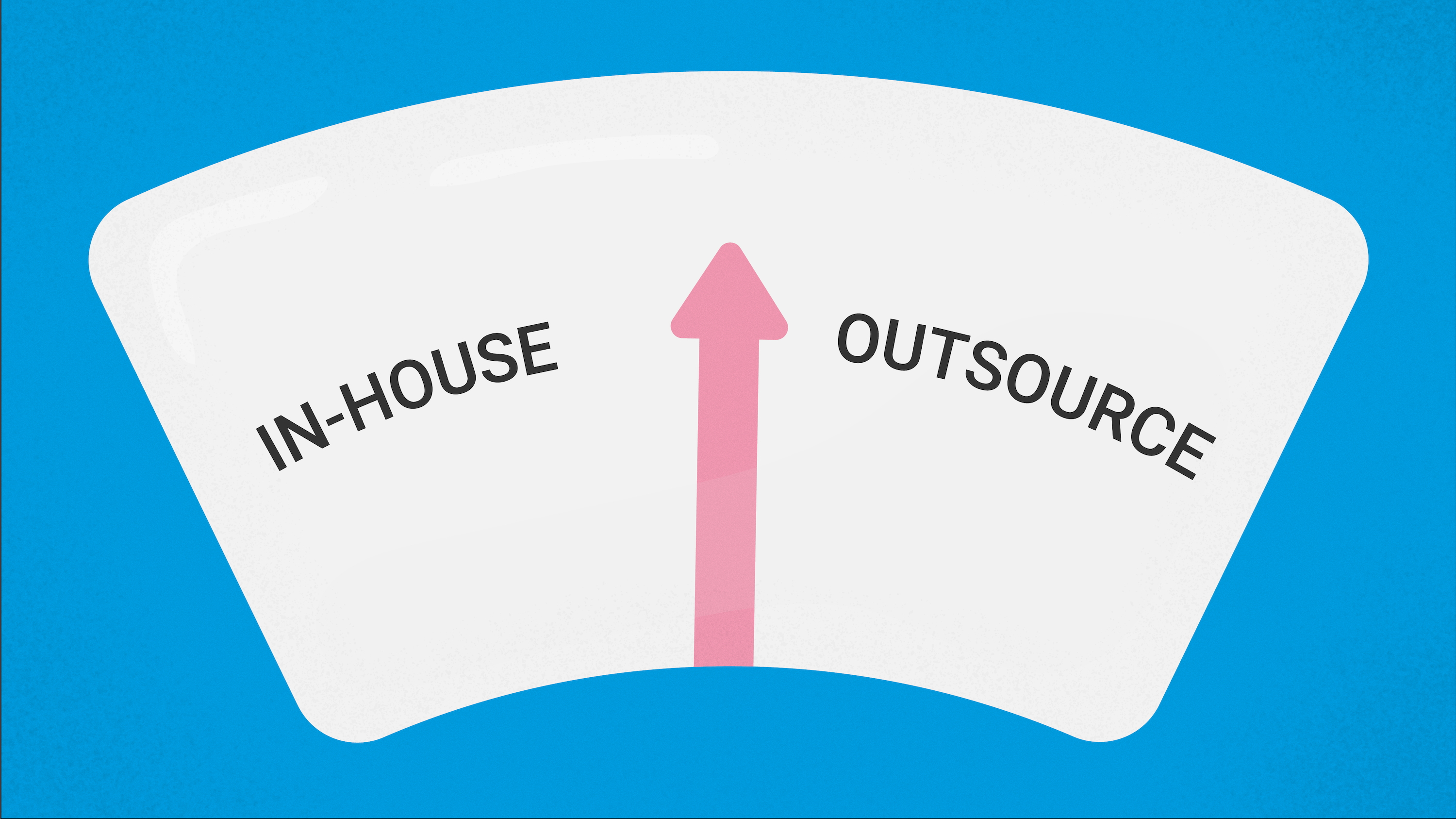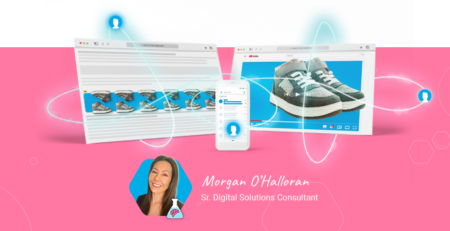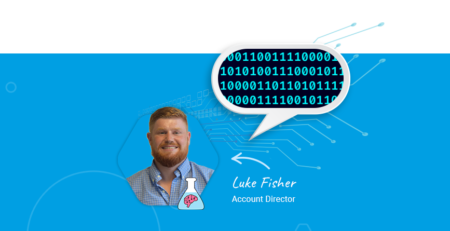The anatomy of in-housing
The recent wave of in-housing is the inevitable consequence of an outdated media trading business model. Why shouldn’t advertisers expect transparency, control, and mutual trust?
With the rise of digital, the advertising industry has changed overnight. The role of agencies has changed. And in the realm of biddable media, it’s a very simple formula:
A flexible service offering + agencies doing what clients can’t do themselves = agencies supporting clients exactly where they need support.
The easiest way to think about in-housing is to see it as a spectrum. In short, there are things that should incontestably always be owned in-house. Then there are the activities that can be owned in-house or outsourced depending on business goals and strategic direction. Finally, on the other end, there are services that should always be supported or owned by agencies.
Let’s break that down in more detail!
Must own in-house
Direct partnership with platforms
With the rise of companies like Google and Facebook, it makes so much more sense for contractual relationships to sit in-house. Advertisers dealing with media owners directly makes it much easier to ensure transparency and control with zero markups.
Data ownership
This is just a no-brainer. Data acquired during the course of a campaign must be the legal property of the client, not the agency’s. Agencies should never, ever be able to hold data hostage.
Brand ownership
Biddable agencies aren’t branding agencies. Branding is equally important in PPC as it is in other channels, so advertisers need to sign off ad copy and keyword targeting to make sure branding stays in their control.
Big picture strategic direction
Although agencies have a place in strategy consultancy, long term strategic direction needs to come from the advertiser. Whatever an advertiser needs from an agency, in-depth marketing strategy should always be rooted internally.
Budgeting
Agencies really shouldn’t be deciding your budget for you. That being said, it’s important to approach budget with flexibility in biddable. It can be counterproductive to set tight restrictions on spend in such an unpredictable space.
Can in-house or outsource
These operations should can be in-housed or outsourced, depending on the circumstances, but where collaboration is always key. They’re ranked in order, ranging from more likely to need to be in-housed to less likely.
Attribution
Advertisers definitely need to work closely with agencies when it comes to attribution. It’s a technically complex subject, and agencies are well-placed to keep pace with it. However, it shouldn’t be up to agencies to decide the value of their own work.
Audience segmentation
Advertisers have the best understanding of their brand and their business objectives, so they should have the final say over audience targeting. On the other hand, agencies can more easily make incremental improvements based on campaign performance, so collaboration is important.
Data strategy
Data strategy is in the middle of the spectrum because advertisers should always own their data and absolutely need to have people in-house who understand data. But agencies have the biddable media specialists who are experts at handling data, and are more likely to have the necessary tech for data collection and analysing, as well as testing and reporting.
Tech stack strategy
Tech is unfortunately where many issues of non-transparency have arisen. Marketing technology is increasingly complex, and the right agency should be able to inform advertisers on what should or shouldn’t be used. If tech strategy is outsourced, I recommend going for an agency that prioritises simplicity or that you trust enough to make the right procurement decisions.
Ad Trafficking
Campaign managers can be hired in-house if they have the necessary technical skills and knowledge, as well as the resources to keep developing when the landscape changes. Setting up a campaign involves a complicated mix of ad formats, targeting options, and reporting, all in line with up-to-date best practice and trends.
Mid-term strategic direction
Agencies and advertisers both have valuable expertise that can feed into mid-term strategy, so ongoing collaboration is key. If there’s a trust-based relationship where advertisers oversee bigger picture strategic direction, outsourcing more detailed planning to agencies can be beneficial to processes overall.
Standardised best practice
Agencies are decidedly best placed to maintain the ongoing development of best practice. At the same time, in-house teams must absolutely stay on top of best practice as much as possible by doing their research and reading up on trends. At the end of the day, we’re all working towards the same goal of optimising performance by following best practice guidelines.
Creative production
With the way biddable has changed the media landscape, the creative brief has changed completely. With millions of ads and thousands of audience profiles, ad copy isn’t exclusively for wordsmiths anymore. It’s for computer scientists running thousands of micro A/B test to adjust and optimise in real time. Biddable media agencies will usually have the talent needed to produce creative work, but depending on the overall strategic direction and individual campaigns some advertisers may prefer to source their own assets.
Execution
Execution can definitely be done in-house, but it isn’t for amateurs. There’s a reason it’s one of the things agencies do best: they’re both equipped and adaptable to keep producing remarkable results. They develop bespoke methodologies and tech stacks for clients, are experienced at applying automation wherever possible and know how to proactively deal with challenges and continuously optimise. Moreover, agencies have access to extra features from platforms, such as direct support as well as the ability to test betas to quickly adapt to updates.
Should outsource
Finally, we come to the last few activities that should always, in my opinion, be outsourced.
Third party technology
Ad tech is… complicated. But it’s complex for a reason, and entering that world isn’t easy. It doesn’t make sense for advertisers to invest millions into designing and developing their own tools when there are far superior options available, and for much cheaper.
Bespoke technology
Likewise for software. Agencies have tech teams who specialise in just this, and will undoubtedly do a better job than in-house teams. Plus, they’ll build exactly what you need without forcing you to use any of the agency’s other services.
Extra learning and development
Even the best in-house teams are at risk of stagnating in this ever-changing industry. While agencies keep developing their best practice by working with multiple clients, building experience across all verticals, and working with the most up-to-date platform updates, in-house teams don’t have this incoming flow of external input and so can benefit immensely from extra training.
Auditing
This should be pretty obvious: don’t mark your own work. It’s imperative to get an external perspective to check for errors, apply a new way of thinking, and identify new opportunities while making sure all business decisions are made based on accurate data.
The relationship between advertisers and agencies
There’s a lot to in-housing, so advertisers need to know precisely what their business objectives are, and what they absolutely need someone else to do in order to achieve them. That will help define the relationship between advertiser and agency.
But whatever the case may be, the agency’s role always boils down to one thing: do what clients can’t do better themselves. We do this by offering a flexible service model, constantly challenging ourselves to offer value, and serving clients’ best interests. If you ask me, there has never been a more exciting time to be in the industry.




